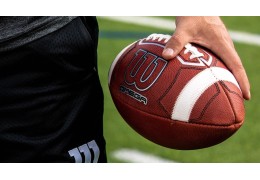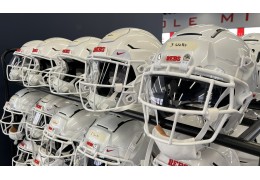With training camp well underway and the preseason on the horizon, we take a look at some of the best trades, hirings...
Search in blog
Blog categories
Latest posts

Which Helmet is the Most Popular in the NFL? A breakdown of the 2024 Pro Bowlers Helmet Choices 05/02/2025 Read more
Posted in: Football Equipment
1041 views
The Importance of Helmets in the NFL When it comes to player safety and performance in the NFL, helmets play a...

Who Will Win Super Bowl LIX? Our NFL Playoff Predictions. 07/01/2025 Read more
Posted in: NFL News & Insights
879 views
It’s the most wonderful time of the year - not Christmas, but the NFL Playoffs! As the new year begins, 14 teams are...
Popular posts

Which Helmet is the Most Popular in the NFL? A breakdown of the 2024 Pro Bowlers Helmet Choices 05/02/2025
Posted in: Football Equipment
1041 views
The Importance of Helmets in the NFL When it comes to player safety and performance in the NFL, helmets play a...
Read more
Wilson's Latest Football Technology: A Look at the Wilson Omega 03/01/2025
Posted in: Football Equipment
954 views
Football has come a long way since its inception, and so has the technology behind the equipment. Wilson, one of the...
Read more
What Facemask Do I Need? A Closer Look at American Football Facemasks 18/11/2024
Posted in: Football Equipment
901 views
When it comes to American football, safety is paramount. Whether you’re a player, coach, or parent, one of the most...
Read more
Who Will Win Super Bowl LIX? Our NFL Playoff Predictions. 07/01/2025
Posted in: NFL News & Insights
879 views
It’s the most wonderful time of the year - not Christmas, but the NFL Playoffs! As the new year begins, 14 teams are...
Read more
When Was the First NFL International Game? A History of the NFL Overseas 04/10/2024
Posted in: Football Equipment
815 views
The National Football League (NFL) has long been an iconic symbol of American sports, but its reach extends far...
Read more







